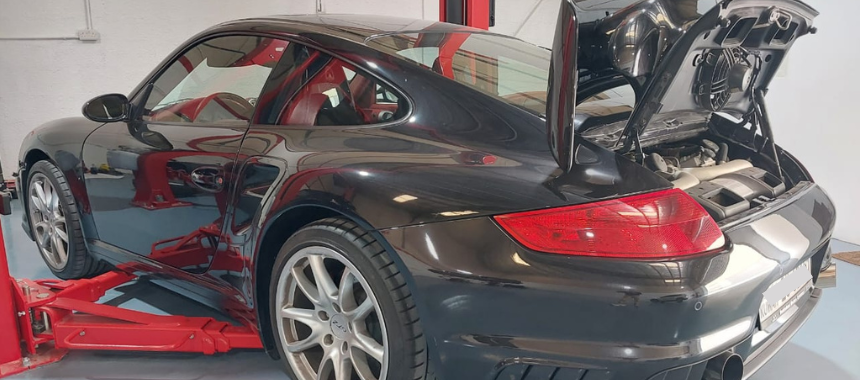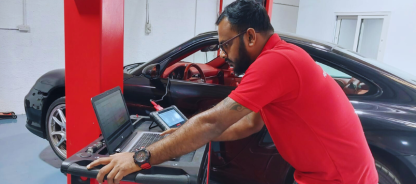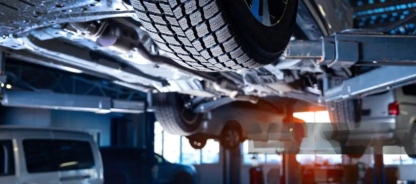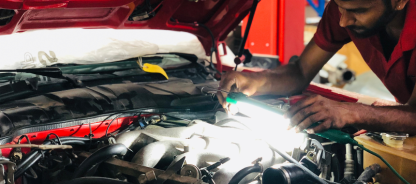Porsche GT2 Maintenance, Repair & Longevity Tips from a Porsche Specialist
The Porsche 911 GT2 is one of the most iconic, high-performance models ever produced by the brand. Known for its rear-wheel-drive layout, twin-turbocharged power, and raw driving dynamics, it sits at the pinnacle of Porsche’s engineering capabilities. But owning a GT2 isn’t just about speed and prestige — it’s about maintaining a finely tuned machine that requires precision care. In this comprehensive guide, we explore essential Porsche GT2 maintenance routines, common Porsche GT2 faults and repairs, and expert-backed longevity tips to ensure your GT2 remains in peak condition.
Understanding Porsche GT2 Maintenance Requirements
Maintaining a Porsche GT2 is not quite like maintaining a standard sports car. These vehicles operate at higher temperatures, generate more stress on critical components, and require specialized service knowledge. For this reason, partnering with a Porsche Specialist or an independent Porsche specialist is highly recommended. These experts understand the unique engineering behind the GT2 and can help you avoid long-term damage through preventive care.
Routine Porsche Maintenance for the GT2 should include frequent oil changes using Porsche-approved synthetic oil, typically every 5,000 to 7,000 miles. Since the GT2’s engine is turbocharged and track-capable, the oil degrades more quickly under intense loads and heat. Regular fluid checks also extend to brake fluid, which should be replaced every two years, and the PDK transmission fluid (if applicable), which needs service around every 40,000 miles. These intervals are not just suggestions — they’re critical to keeping the mechanical systems running as Porsche intended.
Additionally, air and fuel filters must be inspected and replaced as part of a comprehensive Porsche maintenance plan. Dirty filters can impair engine performance and reduce the effectiveness of the turbochargers. Coolant, another often-overlooked system, plays a major role in managing heat. Flushing and replacing the coolant every four years reduces the risk of overheating, especially during track driving or spirited runs.
Common Porsche GT2 Repairs and Faults to Watch Out For
Despite its world-class engineering, the GT2 is not immune to mechanical wear and age-related issues. Over time, even well-maintained vehicles can develop specific problems. Early detection is the key to avoiding costly repairs, and knowing the most frequent Porsche GT2 faults helps owners stay proactive.
One of the most commonly reported concerns involves turbocharger performance. Due to the immense stress placed on the GT2’s twin-turbo system, issues such as boost loss, turbo lag, or abnormal whining noises may begin to appear. These symptoms often signal a need for Porsche GT2 issues fixing, which may include a turbo rebuild or replacement. In either case, only a Porsche Specialist should handle this type of repair to ensure proper calibration and fitment.
Suspension wear is another frequent repair area, especially for cars that see regular track use. Worn control arm bushings, dampers, and sway bar links can affect ride quality and stability at speed. It’s important to have these components inspected regularly — particularly if the car begins to exhibit a clunking noise or unpredictable cornering behavior. Using OEM or high-performance aftermarket suspension parts can restore the GT2’s precise handling feel.
Carbon ceramic brake systems, which are standard on many GT2 RS models, are incredibly effective but come at a high replacement cost. While they typically last longer than steel rotors, they can still develop cracks or become glazed over time. Regular inspections by a Porsche repair expert help determine whether resurfacing, pad replacement, or full rotor swaps are necessary.
Electrical issues are less common but still worth noting. GT2s equipped with Porsche’s PCM (Porsche Communication Management) system can suffer from occasional infotainment glitches or sensor malfunctions. Fault codes related to PDK transmission behavior or stability control systems should also be diagnosed promptly by a certified technician to prevent cascading electronic failures.
Tips for Long-Term Reliability and Longevity
To truly get the most out of your GT2, proactive care is key. Many owners who follow these habits find their cars run flawlessly for over 100,000 miles.
Allow Warm-Up Time
Always let the engine and fluids reach proper operating temperature before pushing the car. Cold oil doesn’t lubricate turbos as effectively, and hard driving before the car is warmed up can cause premature wear. Drive gently for the first 10–15 minutes after a cold start to protect engine internals and turbo seals.
Use the Best Fuel Available
Turbocharged engines are especially sensitive to fuel quality. Always fill up with top-tier premium fuel — at least 93 octane in the U.S. or 98 RON in Europe. Avoid ethanol-heavy blends, which can corrode fuel lines and reduce power. For those who frequently track their cars, some owners choose race fuel or high-octane alternatives to improve performance and consistency.
Proper Storage Techniques
If your GT2 sits for extended periods, how you store it matters. A battery tender is essential to prevent battery drain, especially since these cars are packed with electronics. Store the car in a dry, climate-controlled garage to prevent moisture damage to brakes, wheels, and interior materials. Using a quality car cover and keeping tires properly inflated prevents flat spots and premature aging.
Work With Porsche-Certified Technicians
High-performance cars require expert care. Always service your GT2 at a reputable Porsche specialist or certified dealership. These technicians are trained to recognize early warning signs that general mechanics may miss. They also use genuine Porsche parts, ensuring compatibility and maintaining your car’s performance integrity.
Final Thoughts: Keep Your GT2 Performing Like New
The Porsche 911 GT2 is one of the most thrilling and rewarding cars ever produced. With its incredible power, precision handling, and racing pedigree, it deserves to be treated with the same level of care and respect. Following a strict maintenance regimen, monitoring critical systems, and working with qualified professionals will help ensure your GT2 delivers unmatched performance for years to come.
Whether you use it on the track, the highway, or simply enjoy it as part of a premium car collection, a well-maintained GT2 is a car that will not only retain its value — it will remain a joy to drive every time you turn the key.






